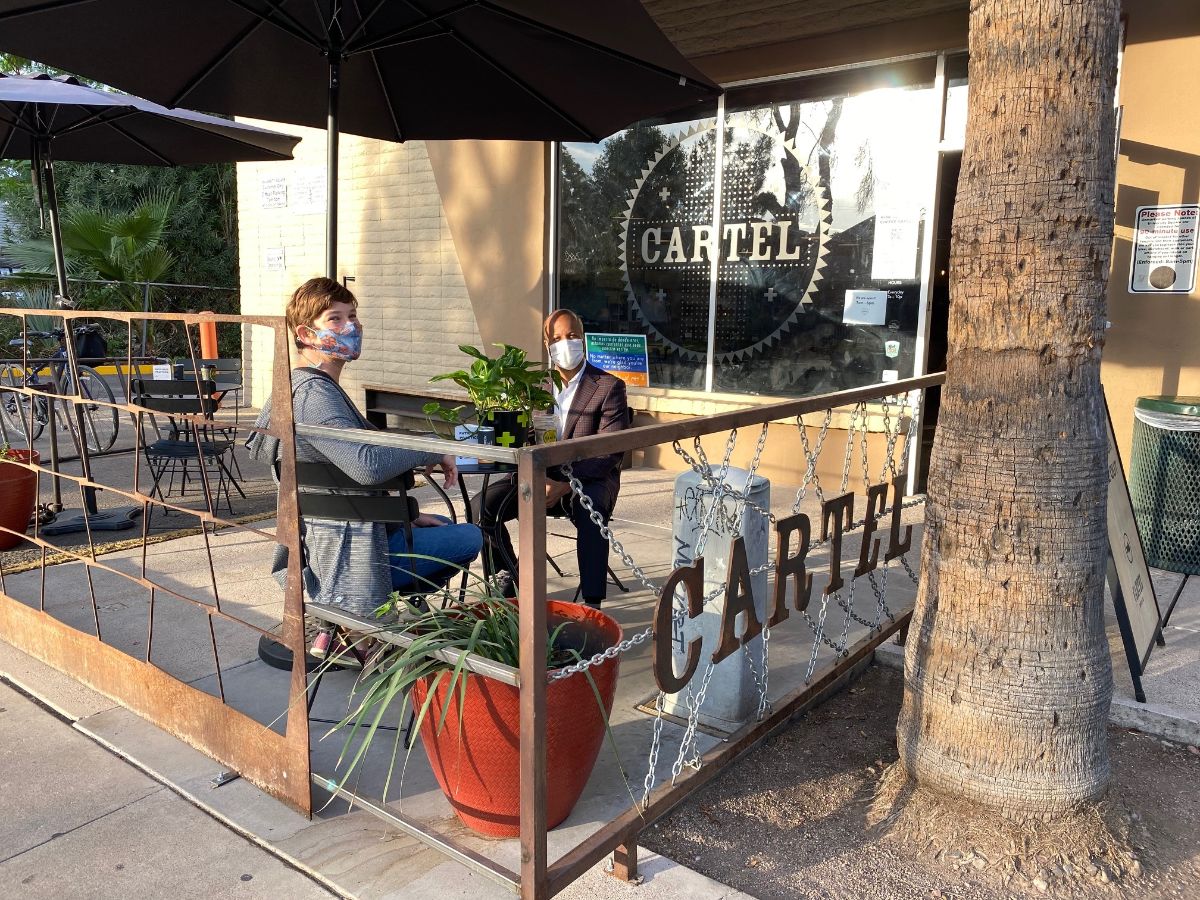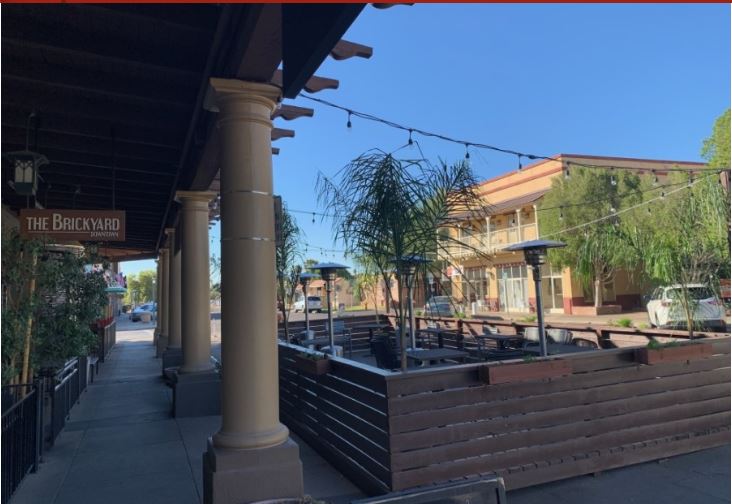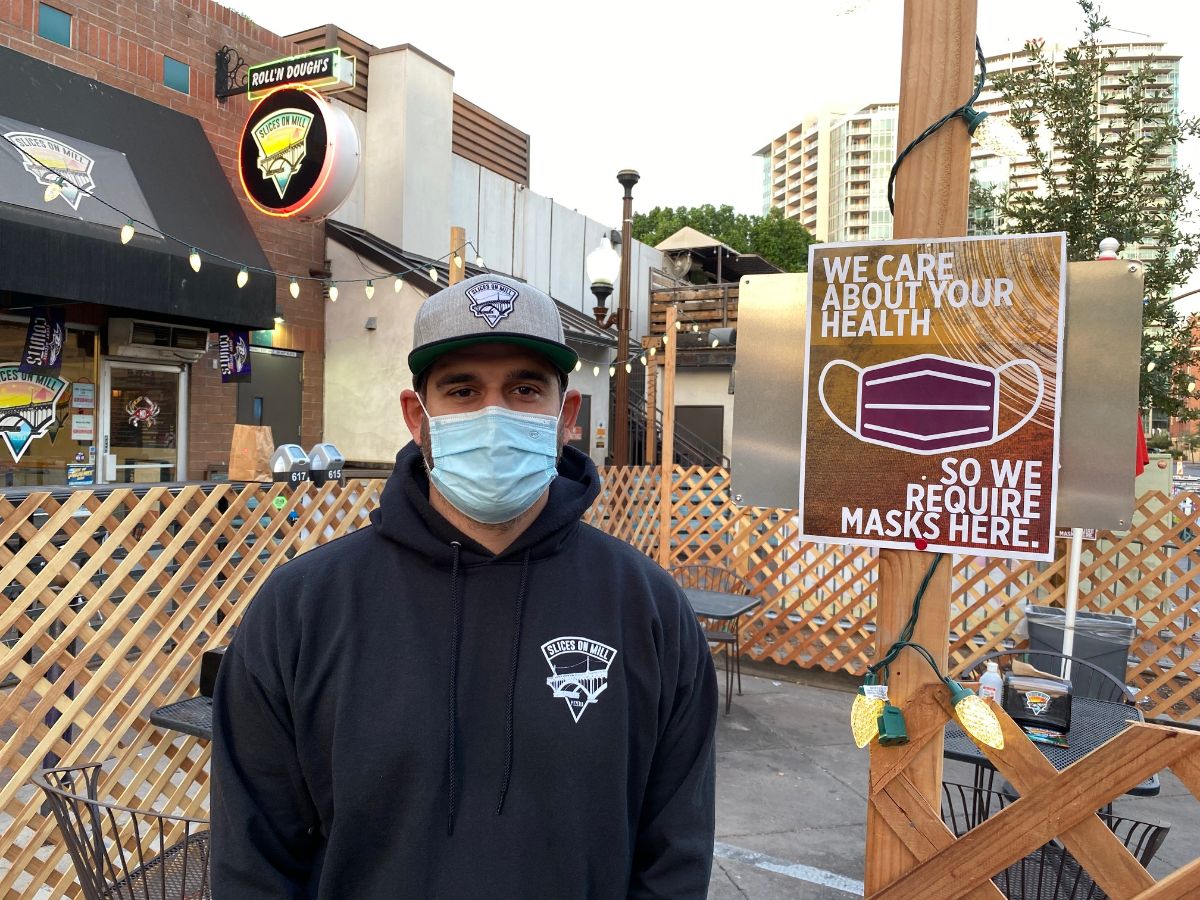
Chandler and Tempe were a step ahead of Gov. Doug Ducey when he announced his executive order Dec. 2 allowing restaurants to expand or create outdoor seating in an attempt to increase acceptable capacity during the COVID-19 pandemic.
The governor’s order, however, goes a step further than the Chandler and Tempe measures by providing $1 million in funding to cover the cost of creating the outdoor spaces: as much as $10,000 per restaurant for items such as outdoor furniture, barriers, patio heaters and patio covers.
“Transforming operations for our restaurants isn’t easy and it certainly isn’t cheap, especially during a pandemic that’s been a challenge of a lifetime for our local and small businesses,” Ducey said. “That’s why … I am issuing an executive order that will allow restaurants to pass sidewalks and other rights-of-way, cutting red tape.
“In Arizona, we have the luxury of a beautiful winter that lends itself to grabbing a table outdoors.”
Ducey’s order remains in effect indefinitely.
Chandler a step ahead ‘On the Street’
Chandler already had launched a program that allows businesses that deal with indoor capacity restrictions to expand onto sidewalks or on-street parking areas outside.

“On the Street” also gives patrons who were uncomfortable dining inside at this point the option to continue supporting their favorite local establishments safely outdoors. The program tentatively will continue through May 31.
“Local businesses are a vital part of our economy and this program is another way Chandler is helping businesses during COVID,” Chandler Mayor Kevin Hartke said. “We all must continue doing our part to mask up and keep a healthy distance, and ‘On the Street’ allows businesses to offer an outdoor experience for our community that’s not quite comfortable with indoor activities.”
The Brickyard, in Downtown Chandler’s Historic Square, was the first business approved to offer on-street dining.
“The past few months have been challenging for the entire industry,” said Gavin Jacobs, co-owner of the Brickyard. “ ‘On the Street’ allows my business to safely expand its dining options while meeting our customers at their comfort level. As soon as we heard about this program, we jumped on the opportunity.”
Mingle + Graze, a downtown cheese shop and eatery, and Burst of Butterflies, a create-and-paint studio downtown, also are participating.
Expansions onto streets are limited to those with a speed limit of 25 mph or lower, no more than one travel lane in each direction (excluding center turn lanes) and with designated on-street parking. Eligible establishments must have street frontage on the ground floor of a building
“On the Street” is not limited to restaurants nor to businesses downtown. It is citywide. Information on qualifications for the program can be found online at chandleraz.gov/OnTheStreet. Businesses must submit an application and receive approval from the city.
For more information or to initiate the application process, contact Downtown Redevelopment Specialist John Carter Owens at 480-782-3047 or email john.owens@chandleraz.gov.
Tempe’s Woods sees value in outdoor seating
Tempe had created a similar program, a free expansion-of-premises permit, allowing businesses into parking lots and sidewalks outside of shops, before Ducey’s executive order. On Dec. 8, Woods amended it to dovetail with Ducey’s order, and extended it to May 9.

Mayor Corey Woods signed a proclamation that allows retail businesses, restaurants and bars to expand onto city or private property without incurring a fee. It creates more space to safely serve customers. Information: Expansion of Premises Application.
Additional review and approval is required by the Arizona Department of Liquor Licenses and Control if alcoholic beverages are to be served.
The state funds in Ducey’s “Safest Outside Restaurant Assistance Program” to help restaurants cover costs of expanding outdoor seating is $1 million initially, to be distributed on a first-come, first-served basis for eligible businesses that have been approved for an extension of premises.
To be eligible, applicants must comply with all COVID-19 related Executive Orders; demonstrate extension of premises approval by a local governing body and the Arizona Department of Liquor, if applicable; plan to extend the premises for a minimum of three months; must have fewer than 50 employees; and must be Arizona owned and operated. Applications opened Dec. 7.
More information is available at azcommerce.com.
Additionally, The Arizona Office of Tourism is providing $100,000 to help restaurants safely and effectively expand outdoor dining. The ARA will provide direct consultation to any Arizona restaurant interested in expanding to increase physical distancing and maximize outdoor seating capacity amid the pandemic.
ARA will assist in navigating the local and state permitting process and provide application review. It will expand public-health campaigns that inform Arizona restaurants of current best practices.
“Just like every other business, Arizona’s restaurants are working hard to navigate the pandemic and protect employees and customers,” said Steve Chucri, ARA President and CEO. “The Arizona Restaurant Association continues to work with public health officials to make adjustments as needed, including moving many operations outdoors and strengthening sanitation measures.”


